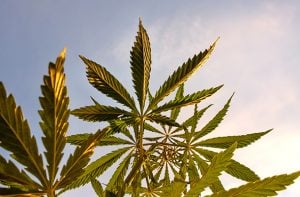Cannabis Beverages Are On The Rise And So Could Be Operators’ Liability
Cannabis stakeholders should proceed cautiously given the legal status of THC but also due to testing and mislabeling failures that have resulted in a growing number of consumer class-action lawsuits and other litigation.
 Recent reporting by the New York Times and Bloomberg revealed that the market for cannabis-infused beverages is growing fast — I also touched on this issue in my previous article, highlighting the need to allow cannabinoids in food and beverages to help fuel the industry’s economic engine.
Recent reporting by the New York Times and Bloomberg revealed that the market for cannabis-infused beverages is growing fast — I also touched on this issue in my previous article, highlighting the need to allow cannabinoids in food and beverages to help fuel the industry’s economic engine.
While it currently constitutes a small product category in the overall cannabis market, the beverage sector saw a 65% increase in dollar sales from 2020 to 2021 across the 12 markets tracked by BDS Analytics (BDSA), a leading cannabis marketing research group.
In light of the legalization of recreational marijuana in 19 U.S. states and the continued growth of the health and wellness industry, many are predicting cannabis beverages will become consumers’ preferred social drinking option.

Legal AI: 3 Steps Law Firms Should Take Now
Cannabis-infused beverages are often marketed as a healthier, more natural alternative to alcohol that offers health benefits, such as better sleep and anxiety reduction.
For example, Cann, the leading THC-infused beverage in the U.S., describes its celebrity-endorsed THC and CBD drinks as “social tonics” that “will make you feel light and happy — no hangover ever.”
Levia, a popular cannabis-infused seltzer company, promotes its products as crafted with “the finest locally sourced buds and simple all-natural ingredients … for those seeking general wellness.”
But experts worry that this category of products is becoming more popular than health research can keep up with. Indeed, conflicting federal and state cannabis laws and regulations have hindered research and caused the cannabis industry to evolve at a faster pace than the data.
Sponsored

Legal AI: 3 Steps Law Firms Should Take Now

The Business Case For AI At Your Law Firm


Is The Future Of Law Distributed? Lessons From The Tech Adoption Curve

Early Adopters Of Legal AI Gaining Competitive Edge In Marketplace
This gap between consumer behavior and scientific research is leaving major questions unanswered regarding the safety of these products as well as their short- and long-term effects on the body.
As is the case with most — if not all — cannabis-infused products, concerns stem from the lack of information surrounding dosage.
THC-infused drinks found on the U.S. market vary vastly in their concentration.
According to a recent study by Headset, cannabis beverages contained anywhere from 10 milligrams (this concentration was found in roughly 18% of the products sold in 2021) to 100 milligrams of THC (the concentration of over half of the beverages sold in 2021), the highest concentration found in states that have legalized these products.
This wide potency range also raises the concern that casual consumers who are new to cannabis and lured by the prospect of a healthy alternative to alcohol may not know how to interpret these numbers and may accidentally end up severely intoxicated or impaired.
Sponsored

Navigating Financial Success by Avoiding Common Pitfalls and Maximizing Firm Performance

Early Adopters Of Legal AI Gaining Competitive Edge In Marketplace
Thankfully, the vast majority of these products are sold in dispensaries located in states that have legalized and regulated cannabis-infused products and whose budtenders are trained to educate consumers.
Nevertheless, significant liability risks remain for operators who are selling these products.
Cannabis stakeholders should proceed cautiously given the legal status of THC under the U.S. Controlled Substances Act (CSA) but also due to testing and mislabeling failures that have resulted in a growing number of consumer class-action lawsuits and other litigation.
Federal legalization and the adoption of uniform standards for manufacturing, testing, and labeling by the FDA would most certainly help to reduce cannabis operators’ liability, provided they meet these standards. But in the meantime, cannabis companies, including operators engaged in the sale of THC-infused beverages, should focus on meeting existing state regulations and on placing a strong emphasis on safety, transparency, and consumer education. Not only will these steps help mitigate the risk of liability, they will also help legitimize the industry and help it reach its full economic potential.
 Nathalie Bougenies focuses her practice on health and wellness, in addition to corporate transactions and regulatory compliance. For the past four years, Nathalie has helped clients navigate the complex regulatory landscape of hemp products intended for human consumption and advises domestic and international clients on the sale, distribution, marketing, labeling, and importation of these products. Nathalie frequently speaks on these issues and has made national media appearances, including on NPR’s “Marketplace.” She also authors a weekly column for “Above the Law” that features content on cannabis policy and regulation. For four consecutive years, Nathalie has been named Rising Star by Super Lawyers.
Nathalie Bougenies focuses her practice on health and wellness, in addition to corporate transactions and regulatory compliance. For the past four years, Nathalie has helped clients navigate the complex regulatory landscape of hemp products intended for human consumption and advises domestic and international clients on the sale, distribution, marketing, labeling, and importation of these products. Nathalie frequently speaks on these issues and has made national media appearances, including on NPR’s “Marketplace.” She also authors a weekly column for “Above the Law” that features content on cannabis policy and regulation. For four consecutive years, Nathalie has been named Rising Star by Super Lawyers.







